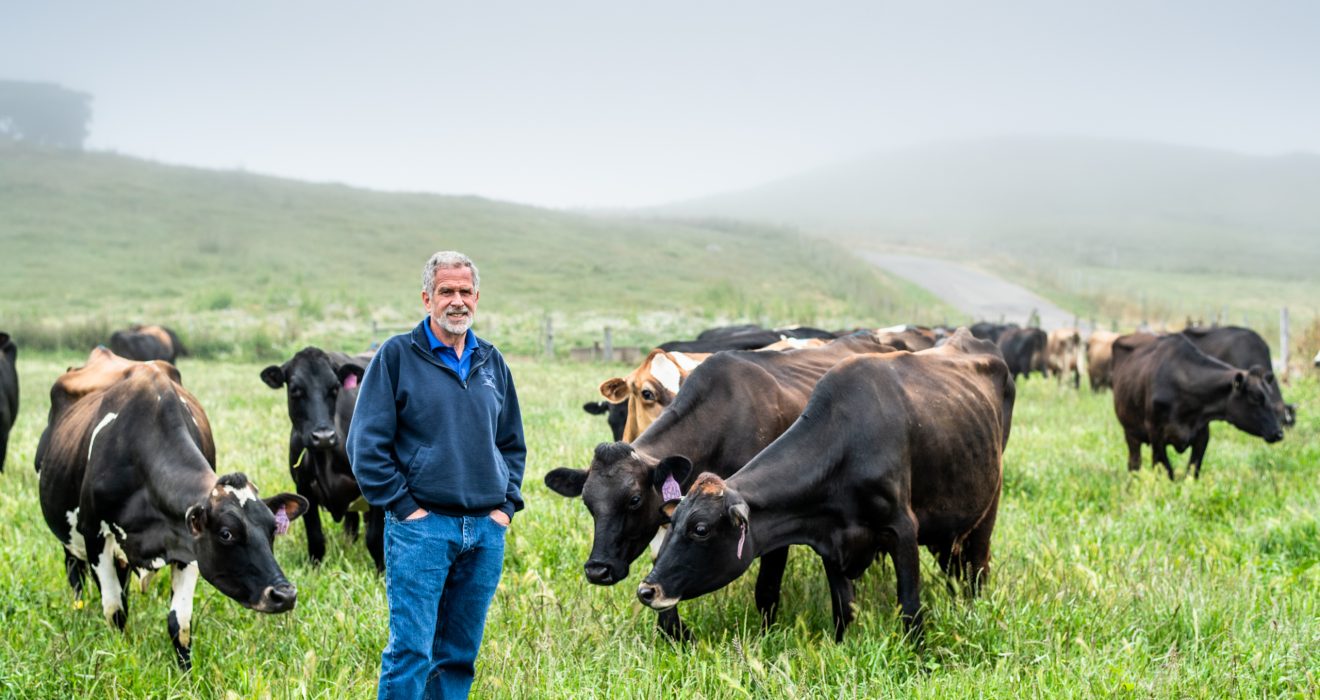Straus Family Creamery, renowned for its leadership in organic dairy farming, has launched the innovative Organic Dairy Sustainability Incentive Program. This groundbreaking initiative is designed to fortify on-farm climate solutions by offering financial support to participating farms. Through a structured system of monthly payments, farmers are encouraged to embrace emissions-reduction measures, thereby contributing to a more sustainable agricultural landscape. By incentivizing the adoption of sustainable practices, such as regenerative land management and the implementation of anaerobic digesters to mitigate methane emissions, the program not only drives environmental stewardship but also fosters a resilient farming ecosystem. Straus Family Creamery’s commitment to supporting and incentivizing sustainable agriculture underscores its dedication to mitigating the environmental impact of dairy farming while championing the adoption of eco-friendly practices within the industry. This initiative represents a significant stride towards a more sustainable future for dairy farming and underscores the company’s position as a trailblazer in the realm of organic agriculture.
Objectives of the Program
The Organic Dairy Sustainability Incentive Program is strategically designed to achieve several key objectives aimed at fostering a more sustainable agricultural sector. Firstly, the program seeks to encourage and facilitate the widespread adoption of on-farm emissions-reduction efforts among participating dairy farms. This includes implementing a range of sustainable practices such as regenerative land management, the utilization of anaerobic digesters to curb methane emissions, and the implementation of composting techniques, among others.
By prioritizing tangible results derived from direct actions, the program aims to drive meaningful and measurable reductions in greenhouse gas emissions within the dairy industry. Unlike indirect measures such as purchasing carbon offsets, which may offer temporary solutions, the program underscores the importance of implementing sustainable practices at the source.
Furthermore, by incentivizing farmers to adopt emissions-reduction measures, the program not only contributes to mitigating the environmental impact of dairy farming but also fosters a culture of innovation and collaboration within the agricultural community. Through collective action and tangible results, the program aims to catalyze broader transformations towards a more sustainable and resilient food system. Ultimately, the primary objective of the Organic Dairy Sustainability Incentive Program is to drive positive environmental change while supporting the long-term viability of organic dairy farming.
Program Requirements and Eligibility
Participating farms must adhere to the rigorous standards set forth by the U.S. Department of Agriculture’s National Organic Program. This ensures that the program remains rooted in organic farming practices, aligning with Straus Family Creamery’s commitment to sustainability and environmental stewardship. Eligible farms will receive incentive payments based on the successful implementation of carbon-reducing farming techniques, thus fostering a collective effort towards reducing agriculture-related emissions.
Recognition and Collaborative Efforts
Straus Family Creamery’s collaborative approach to emissions reduction has garnered recognition from esteemed organizations such as the World Wildlife Fund. The company’s dedication to fostering collaboration and innovation among its network of organic dairy farms has been highlighted in the WWF’s report titled “Reducing Greenhouse Gases with Incentives at the Farm.” This acknowledgment underscores the significance of collective action in addressing climate change and advancing sustainable agricultural practices.
Sustainable Farming Practices and Economic Impact
In line with its mission to revitalize rural communities, Straus Family Creamery remains committed to supporting family farms and promoting organic farming practices. Amidst the decline in the number of dairy farms in the United States, the company stands as a beacon of sustainability, upholding the economic viability of organic agriculture. By championing initiatives such as rotational grazing, soil enrichment, and ecosystem restoration, Straus Family Creamery pioneers a model for carbon-neutral organic dairy farming.
Expansion and Supplier Collaboration
Straus Family Creamery’s recent expansion of its supplier group exemplifies its steadfast commitment to cultivating sustainable partnerships within the agricultural community. The inclusion of three new farms—Moretti Family Farm, Robert McClelland Dairy, and Nosecchi Family Dairy—underscores the company’s dedication to broadening its network of environmentally conscious collaborators.
By forging strategic alliances and fostering supplier collaborations, Straus Family Creamery not only expands its reach but also strengthens its capacity to drive positive change within the dairy industry. These new partnerships not only enhance the company’s ability to source high-quality organic dairy products but also serve as a testament to its unwavering commitment to sustainability.
Furthermore, these collaborations facilitate knowledge exchange and best practices sharing among like-minded stakeholders, fostering a culture of innovation and continuous improvement. Through collective efforts and collaborative initiatives, Straus Family Creamery endeavors to pave the way for a more resilient and sustainable food system.
In essence, the expansion of its supplier group reflects Straus Family Creamery’s vision of creating a more interconnected and sustainable agricultural ecosystem. By working hand in hand with its partners, the company aims to drive meaningful change and set new standards for sustainability within the dairy industry.
Conclusion: Driving Sustainable Change
Straus Family Creamery’s Organic Dairy Sustainability Incentive Program represents a significant step towards driving sustainable change within the dairy industry. By incentivizing emissions-reduction efforts and promoting organic farming practices, the company demonstrates its unwavering commitment to environmental stewardship and community revitalization. As the program gains traction and expands its reach, it holds the potential to catalyze broader transformations within the agricultural sector, ultimately fostering a more sustainable and resilient future for generations to come.

